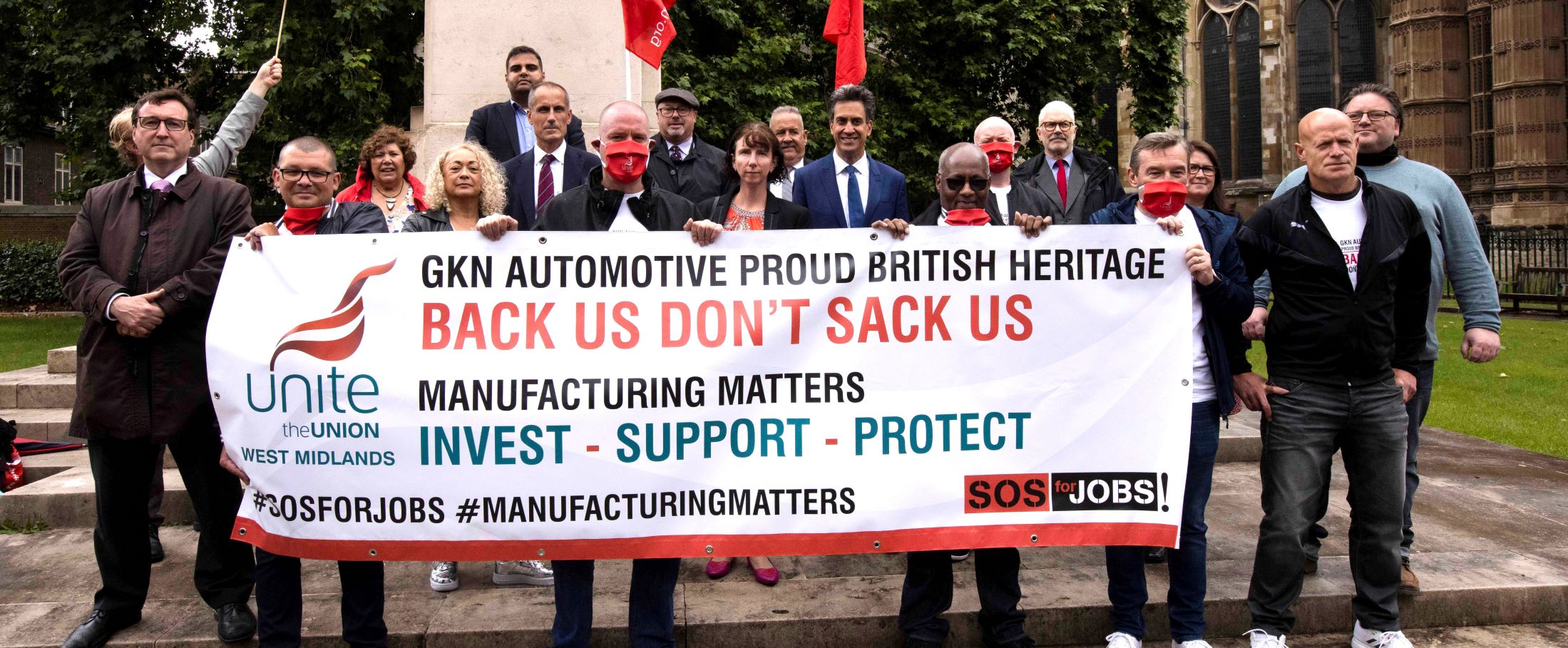Manufacturing matters
There’s no doubt that manufacturing in the UK has taken an extra pounding amid Brexit uncertainty.
The latest October figures paint a bleak picture – Britain’s manufacturing plants have been hit by six months in a row of falling new orders, with the threat of a no deal Brexit prompting a majority of factory owners to stall on investment for the coming year.
Manufacturers across a number of industries, including automotive, pharmaceutical, aerospace and plastics have reported cutting production over the last six months in response to the potential scenario of the UK leaving the EU without a deal.
Meanwhile, the number of manufacturing companies going bust has reached its highest level in five years in the last 12 months.
But as worrying as the latest data is, the reality is that manufacturing under successive Tory governments has for years been held back from its full potential. In the last decade alone, more than 600,000 manufacturing jobs have been lost.
Unite believes the only way to reverse the long-term decline of manufacturing is with radical action.
The union today (November 19) has outlined a plan for such action in a blue-print called Manufacturing Matters, unveiled on the penultimate day of Unite’s sixth sector conference in Brighton.
The long-term industrial plan, developed by Unite shop stewards across all five of the union’s manufacturing sectors, provides a route map for industry.
At the heart of the strategy is the need for a sustainable manufacturing sector based on an ambitious 10 point plan that includes investment, defending foundation industries and crucially, a demand that we â€Build local – Buy UK’, supporting jobs, skills and communities relying on a strong manufacturing sector.
“We have in our hands the power to make sure that government at every level uses its procurement budget to support British manufacturing and its extended supply chains,” said Unite assistant general secretary Steve Turner.
“We can and must bring back the thousands of manufacturing jobs that moved overseas in order to shorten supply chains and reduce our overall global carbon footprint — and we need a â€just transition’ to new green sustainable jobs,” he added. “Workers must be leaders in our industries and trade unions must be on the frontline of the green industrial revolution.
“Guaranteeing high quality vocational apprenticeships and lifelong learning are also key,” Turner went on to say. “Workers must have the opportunity to learn new skills and develop during downtimes without loss of pay in a radical shake up of working time.
“With regards to automation and artificial intelligence, the next industrial revolution can either herald a dystopian future or it can enrich our lives, freeing us to fulfil our true potential as human beings. Only with a strong, determined and confident trade union voice will this next industrial revolution benefit workers and wider society.”
“Sectoral collective bargaining, true industrial democracy and new corporate ownership models providing a collective voice for working people via their unions are central to the long-term future of advanced, sustainable manufacturing.
“Our strategy for manufacturing lays out such a vision and we call on our movement to get behind its delivery.“
 Like
Like Follow
Follow
